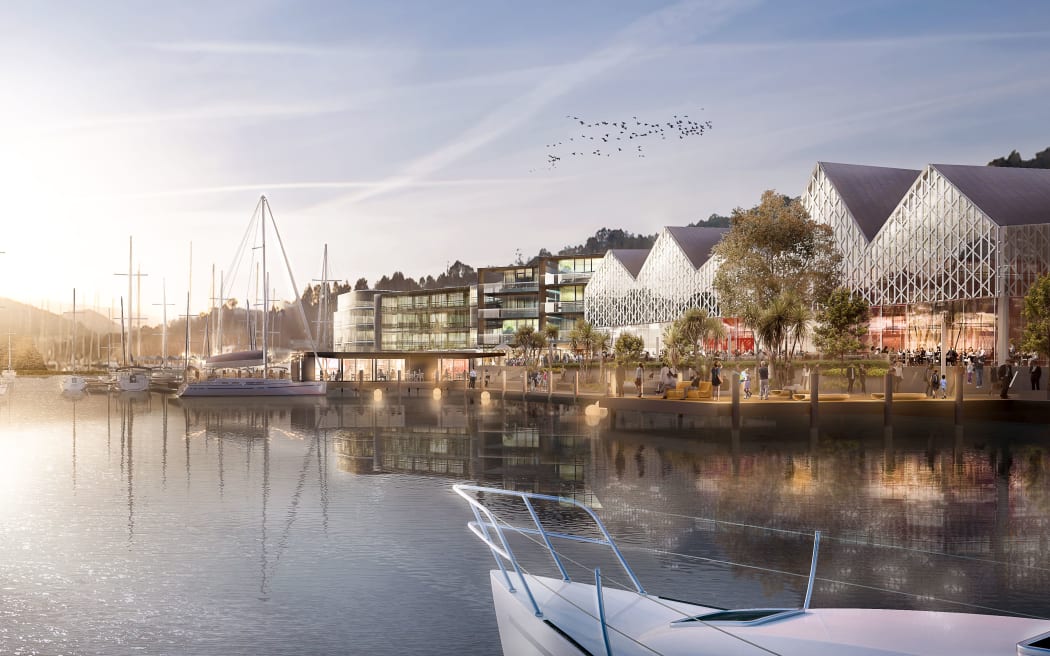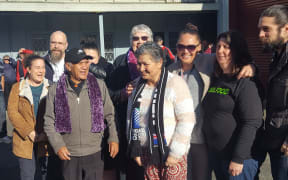Developers keen to build a conference centre in Whangarei are eyeing up council funding set aside for the arts.

An architect’s idea of what the new hotel/conference centre might look like on the Whangarei waterfront. Photo: Supplied / Griffiths & Associates
The Whangarei Council has been setting aside $10 million for a theatre in its long-term plans for well over a decade.
The project has only just made it off the wish list and onto the to-do list, and mayor Sheryl Mai said it was badly needed.
Whangarei's existing theatre, the Capitaine Bougainville seats only 400 she said, and in a district of 90,000 people there was nowhere fit to host the New Zealand Symphony Orchestra, the full ballet, or many touring shows.
"The community's grown and there's demand for a venue with comfortable tiered seating that could accommodate 800 to 100 people - depending on how far we want to go," she said.
But the Northland Development Corporation said the council's $10m would barely buy a stage and dressing rooms these days.
The corporation is made up of local investors who plan to build a $200m hotel and conference centre across the river from the soon to be built Hundertwasser gallery.
Spokesman Barry Trass said the group was hoping the council would invest some or all of that $10m theatre fund into the conference centre.
"Northland Inc [the regional development agency] has done a feasibility study on what a conference centre could do for Northland and in the first year it's something like 260 conferences we'd get if we had that facility available," he said.
Mr Trass said the hotel would not be viable without the conference centre and vice versa. And it would be years before Whangarei could afford a standalone theatre at a cost of at $30m to $50m, he said.
The answer was to build a hybrid auditorium, owned by the community, that could be used for conferences and entertainment, Mr Trass said.
"That's how they work more effectively around other parts of the country. They're not just an auditorium or a conference centre - they are multi-purpose. They can be configured in a whole lot of different ways for small conferences, concerts, shows, anything.
"We are talking to a whole lot of organisations that might use it and coming up with a hybrid that works for everyone," he said.
But a long-time patron of the arts, Whangarei lawyer Ian Reeves said that might be wishful thinking.
"The concept that's been shown to me is that it should be multi-purpose and very flexible. That has the disadvantage that it may not serve successfully either as an auditorium or as a large theatre. It may just serve conferences," he said.
Mr Reeves said the design of the conference centre would be the key to whether it could serve the performing arts.
The needs of theatre productions versus unamplified music were rarely compatible, he warned.
"Ideally, it would satisfy at least an auditorium's purpose. In other words it would be good for orchestras, and all sorts of musical events and if we got that it would be a great stride forward for Whangarei.
"We would still be short of a large theatre with a fly tower and proscenium arch, but at least it would be a start," Mr Reeves said.
Sheryl Mai said the trust building a Māori cultural centre and performance venue at the town basin had also asked if it might qualify for the council's theatre funds.
She said kapa haka was very popular in the north, and some tricky choices lay ahead for the council and the Whangarei community.
"That's the kind of thing we'll be testing with the developers: if the ratepayers were to invest in this facility for the benefit of the people coming in for conferences, would it be meeting the needs of the local community as well? Then we might get a win-win."
Whangarei needed both an auditorium and a theatre, and to help it weigh the options, it's just taken on a specialist advisor to analyse the city's venue needs and suggest the best way to meet them, she said.



